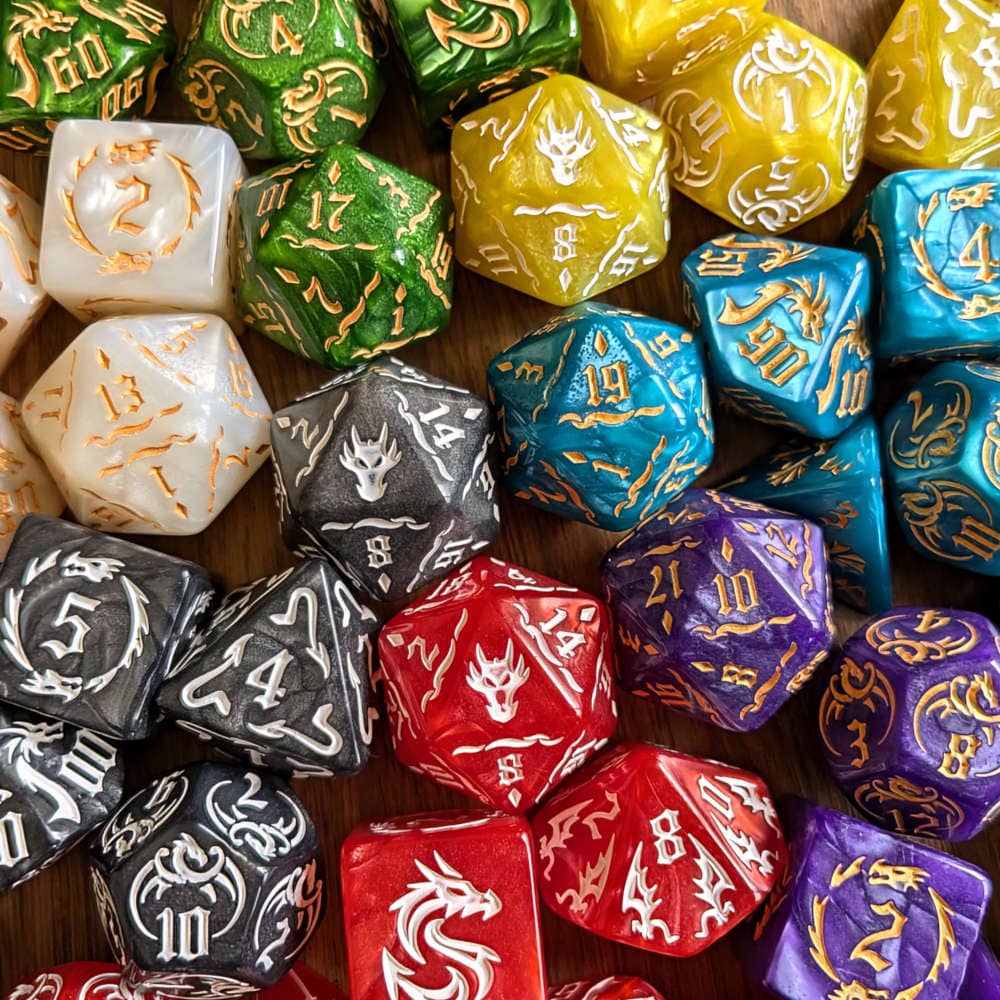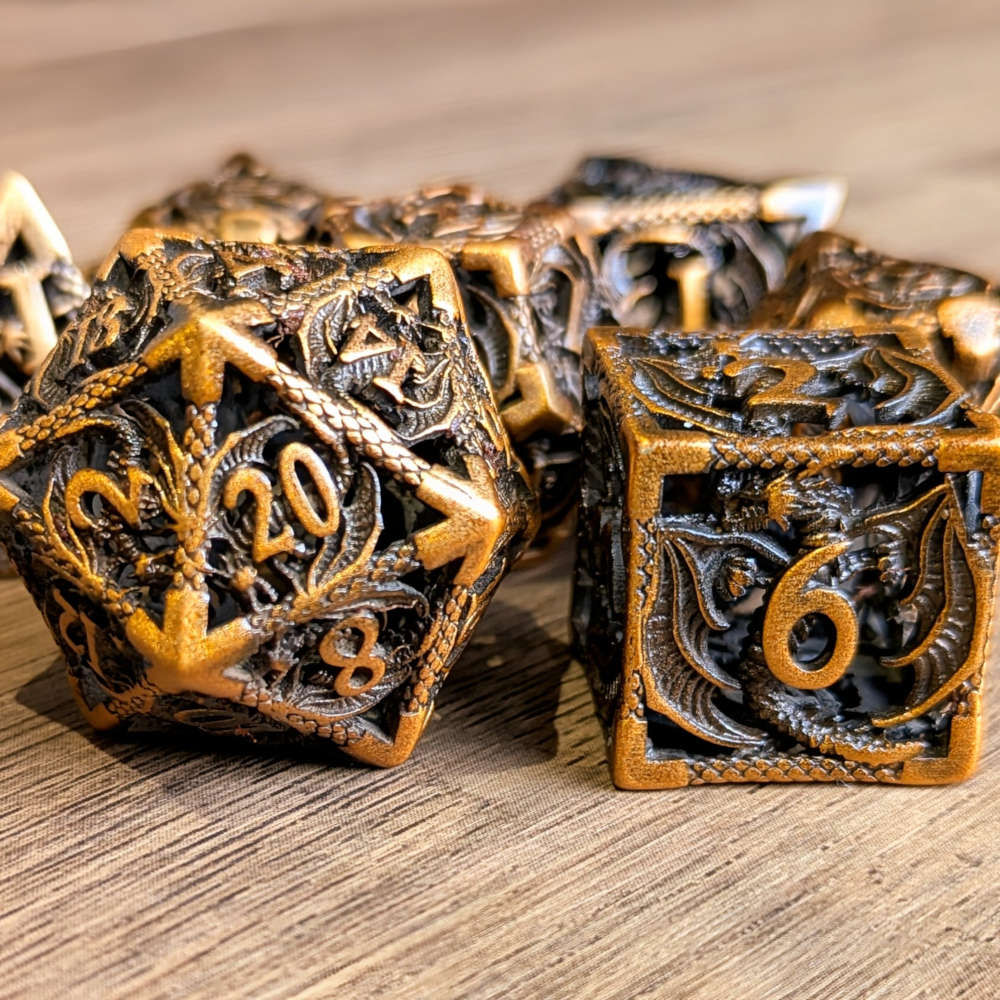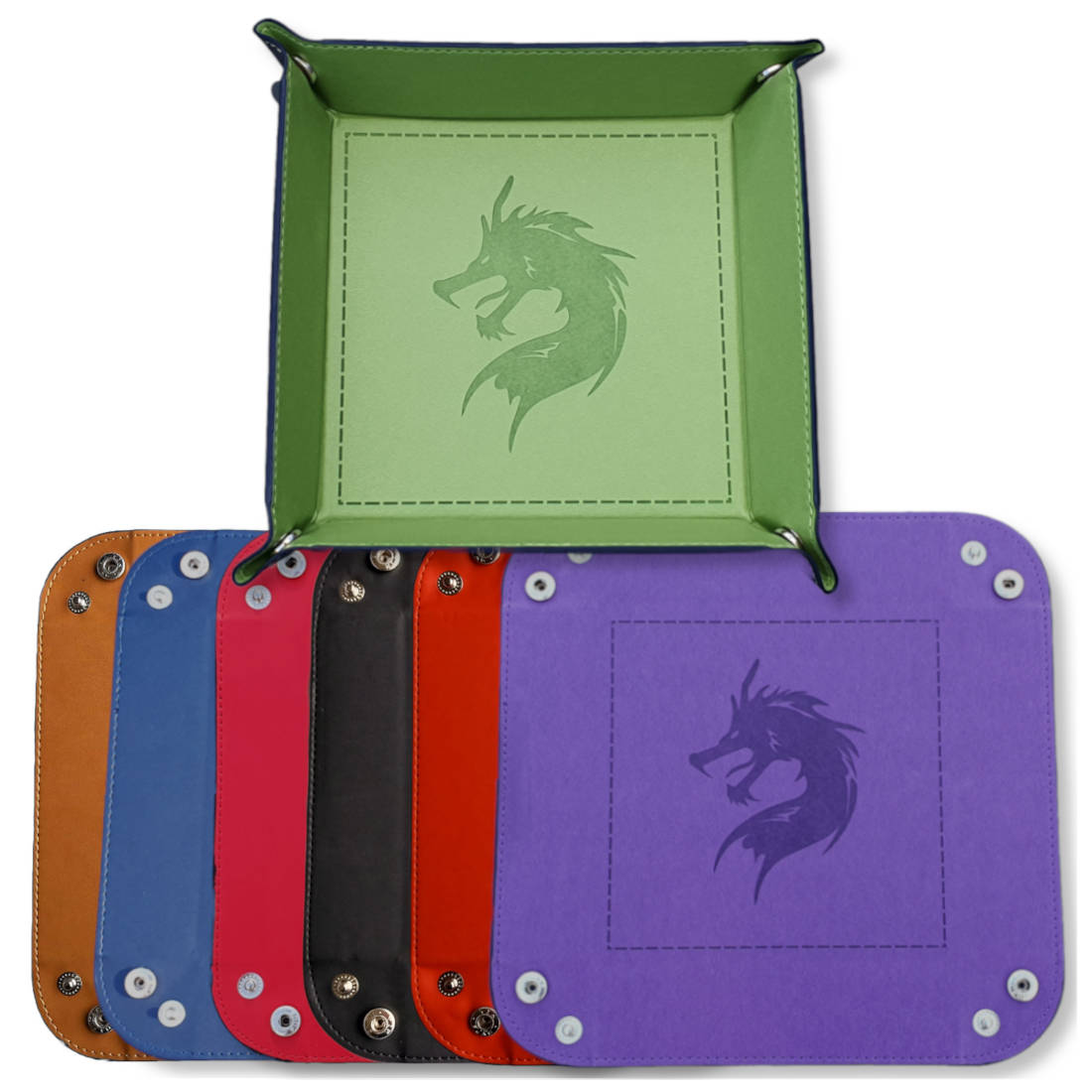Why does DND use a d20?

In the enchanting realms of Dungeons & Dragons, where dragons soar and adventurers tread, one iconic polyhedral die takes centre stage - the d20. This twenty-sided die is not merely a tool for determining success or failure; it is a symbol of chance, fate, and the unpredictable twists that make every tabletop campaign an epic journey.
In this article, we explore why D&D uses d20 dice and when the d20 system came about.
Why does DND use a d20?
Dungeons & Dragons uses a d20 for its core mechanics to introduce an element of chance and uncertainty to the game. The d20 is the go-to die for resolving a wide array of actions, from determining the success of attack rolls to spellcasting, ability checks, and saving throws.
When did D&D switch to the d20 system?
Dungeons & Dragons officially adopted the d20 system with the release of its 3rd edition in the year 2000. However, the association between D&D and the d20 die has deep roots.
In the very early years, the original D&D manuals included two sets of rules - one utilising the d20 die, and another utilizing other types of dice. This dual system persisted for quite some time before the d20 system became the standard with the 3rd edition.
Since then, the d20 has been an integral part of the game, defining the mechanics for resolving actions, adding an element of unpredictability, and contributing to the rich tapestry of stories woven within the realms of Dungeons & Dragons.
Is the d20 system good?
The d20 system, employed by Dungeons & Dragons and various other tabletop role-playing games, carries both advantages and disadvantages that contribute to its overall effectiveness.
Advantages of a d20 system
- Ease of rolling: the simplicity of the d20 system lies in its ubiquitous use. Most actions in D&D involve rolling a d20, adding a modifier, and determining success or failure. While other types of D&D dice exist, the d20 takes the spotlight for the majority of rolls.
- Linear chances: in the d20 system, chances are linear, providing a straightforward probability curve. This simplicity makes it easy for players to understand, as the likelihood of rolling a 1 is the same as rolling a 20.
- Widespread understanding: as Dungeons & Dragons serves as many players' introduction to tabletop role-playing, the d20 system is widely understood. This familiarity reduces the learning curve for beginners, fostering accessibility and ease of adoption.
Disadvantages of a d20 system
- Limited variety of dice: while the d20 system is prevalent, it does limit the variety of dice used in gameplay. Some players may seek more diverse or specialised dice mechanics, which can be found in alternative systems such as d6 or d10 systems.
- Linear probability may lack complexity: the linear nature of the d20 system's probability curve, while accessible, may lack the complexity desired by players seeking a more nuanced and varied range of outcomes in their gaming experience.
In essence, the d20 system offers a balance between simplicity and accessibility, making it an excellent choice for beginners and those who appreciate straightforward mechanics. However, its advantages and disadvantages are subjective, and players are encouraged to explore different systems to find the one that best aligns with their preferences and playstyle.
Beyond D&D, many popular tabletop systems, such as Pathfinder, also utilise the d20 system. This shared mechanic facilitates a seamless transition for players exploring different TTRPGs without the need for extensive learning.
Did the d20 exist before DND?
Yes! The twenty-sided die, known formally as an icosahedron, predates the advent of Dungeons & Dragons. The use of such dice can be traced back to ancient times, with some recovered examples dating as far back as Ancient Egypt.
If you're intrigued by the evolution of the d20 and its significance throughout history, explore our pages dedicated to the world's most expensive d20 and the world's oldest d20 die. These insights offer a captivating journey into the enduring legacy of this iconic die.
Treat yourself to some new dice
As a UK-based retailer of D&D dice sets, we’re here to help every adventurer on their journey. We have a stunning collection of dice that not only embody the spirit of the game but also add a dash of style to your tabletop exploits.
To accompany your newfound treasures, explore our selection of dice scrolls, the essential companions for your dice-rolling affairs. These scrolls not only provide a stylish and practical storage solution but also serve as a testament to the artistry that goes into every roll of the dice.





